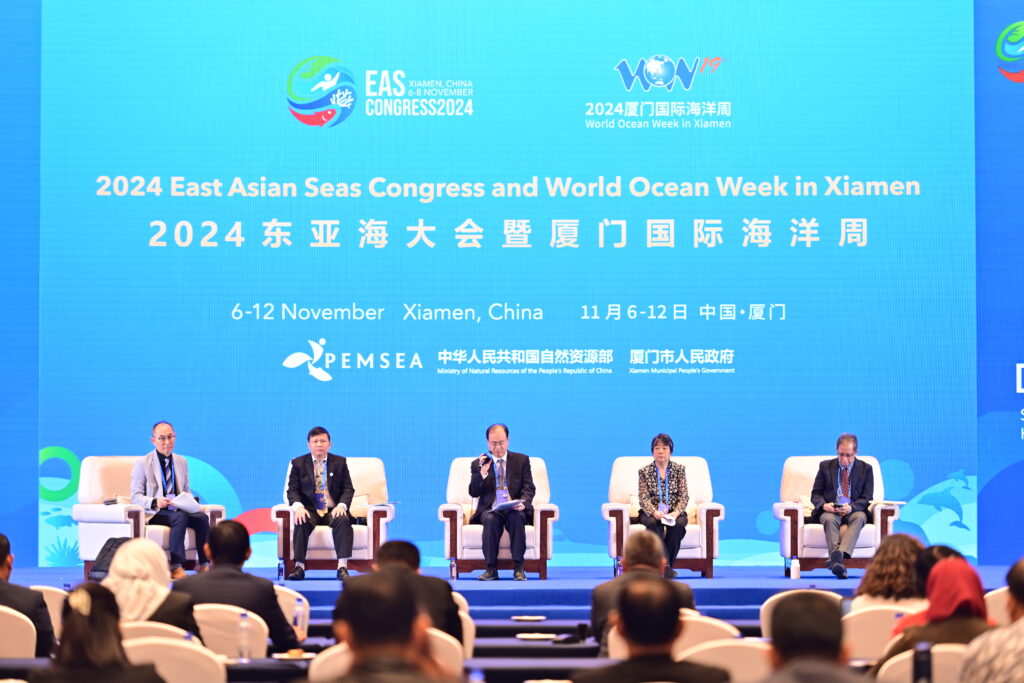Ocean Science, Policy, and Practice

The second plenary session of the EAS Congress tackled Ocean Science, Policy, and Practice and was well received by EAS Congress delegates. (PRF)
“As we have been facing a dynamically-changing world with more uncertainties and unpredictability, more collective actions between the government, scientists and other stakeholders should be heavily highlighted. Policymakers need to implement scientific ideas in order to address the uncertainties of sustainability along with the triple planetary crises of biodiversity loss, climate change and pollution,” said Korea Maritime Institute Senior Research Fellow Dr. Jungho Nam.
Science plays a crucial role in shaping policies and decision making for more resilient and sustainable oceans and coasts. Scientific advice and support are necessary for national and local governments to more effectively implement management actions for impactful results.
A number of successful management programs and policies that benefited from strong scientific support from China, Viet Nam and in the ASEAN region are available, such as the ecological restoration of Yundang Lake and Wuyuan Bay in Xiamen, the implementation of the master plan for marine resources and environmental protection in Viet Nam, the ASEAN Heritage Parks programme, plus others.
Nonetheless, there are gaps to achieving sustainability which include the linkages and connectivity between scientific and local plus indigenous knowledge, as well as between science and the circular economy for addressing complex issues in the coastal and marine ecosystems.
The plenary session concluded that there is a need to strengthen the cooperation and collaboration of the scientific communities, policymakers and practitioners for marine and coastal management.
PEMSEA’s networks of local governments and learning centers were also identified as unique mechanisms which facilitate the linkage between science and local management practice. The use of these networks should be maximized to facilitate information exchange between scientists and policymakers. The linkage between these networks should be further strengthened to respond to priority coastal and management issues. Linking these existing networks with other “green” and “blue” networks should also be considered.
The identification of these linkages are in line with Action 1 of the Xiamen Ministerial Declaration under its Effective Governance subtheme. Action 1 promotes vertical, horizontal and spatial integration to support effective ocean governance and strengthen policy coherence across all sectors.
Lastly, the EAS Congress was recognized as a very good platform to share experiences and good practices, transfer knowledge, as well as bring together the scientific community, policymakers and other stakeholders.
PEMSEA should thus strengthen existing mechanisms to engage scientists, decision makers and implementers, including the documentation of good practices for wider audiences.
